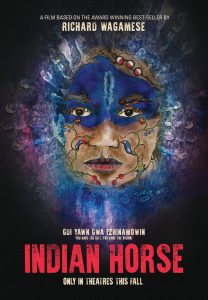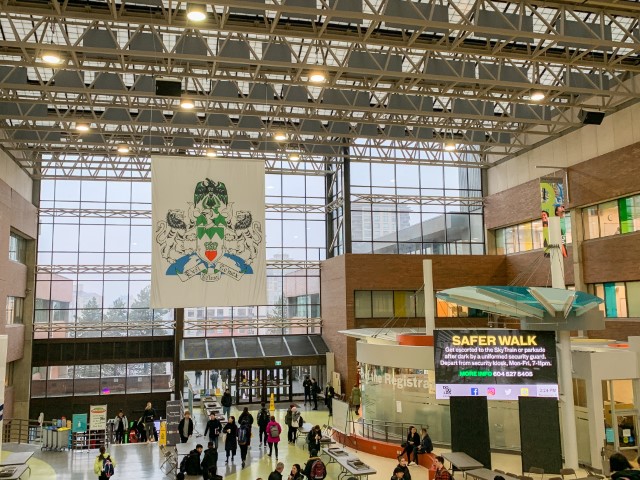
Douglas College screening of ‘Indian Horse’
By Tania Arora, Staff Reporter
Canadian politician Romeo LeBlanc once said, “We owe the Aboriginal peoples a debt that is four centuries old. […] And the reconciliation required may be less a matter of legal texts than of attitudes of the heart.”
To promote this reconciliation, the Douglas Students’ Union organized a screening of the film Indian Horse on March 7. The film is based on the book by Richard Wagamese, who was an Ojibwe columnist, author, and journalist. His own sufferings in life inspired him to share the story—though he never attended a residential school himself, many amongst his own family were residential school survivors.
“Each of the adults had suffered in an institution that tried to scrape the Indian out of their insides, and they came back to the bush raw, sore, and aching,” Wagamese wrote in his essay The Path to Healing.
The movie highlights the life of Canadian First Nations boy Saul Indian Horse who survived the residential schooling system in the 1970s. His road to success is hampered by racism he faces along the way as well as battles with alcoholism and systemic barriers. His passion for the game of hockey and determination to stand out lead to stardom.
On June 11, 2008, Prime Minister Stephen Harper released an official statement apologizing to all victims of the residential schooling system.
“Two primary objectives of the Residential Schools system were to remove and isolate children from the influence of their homes, families, traditions and cultures, and to assimilate them into the dominant culture,” said Harper. “These objectives were based on the assumption that Aboriginal cultures and spiritual beliefs were inferior and unequal. Indeed, some sought, as it was infamously said, ‘to kill the Indian in the child.’ Today, we recognize that this policy of assimilation was wrong, has caused great harm, and has no place in our country.”
The residential schooling system began in the 1880s, with the last school closing in Saskatchewan in 1996. Funded by the Canadian government’s Department of Indian Affairs, the system was administered by the churches. Created with the intention of separating Indigenous children from their cultures and families in an act of cultural genocide, the schools resulted in the physical, emotional, and sexual abuse of the children under their care.
“Stories are meant to heal,” Wagamese wrote in his memoir One Native Life. “That’s what my people say, and it’s what I believe. Culling these stories has taken me a long way down the healing path from the trauma I carried.”
The screening of Indian Horse was attended by many and the film well-received by the audience.



